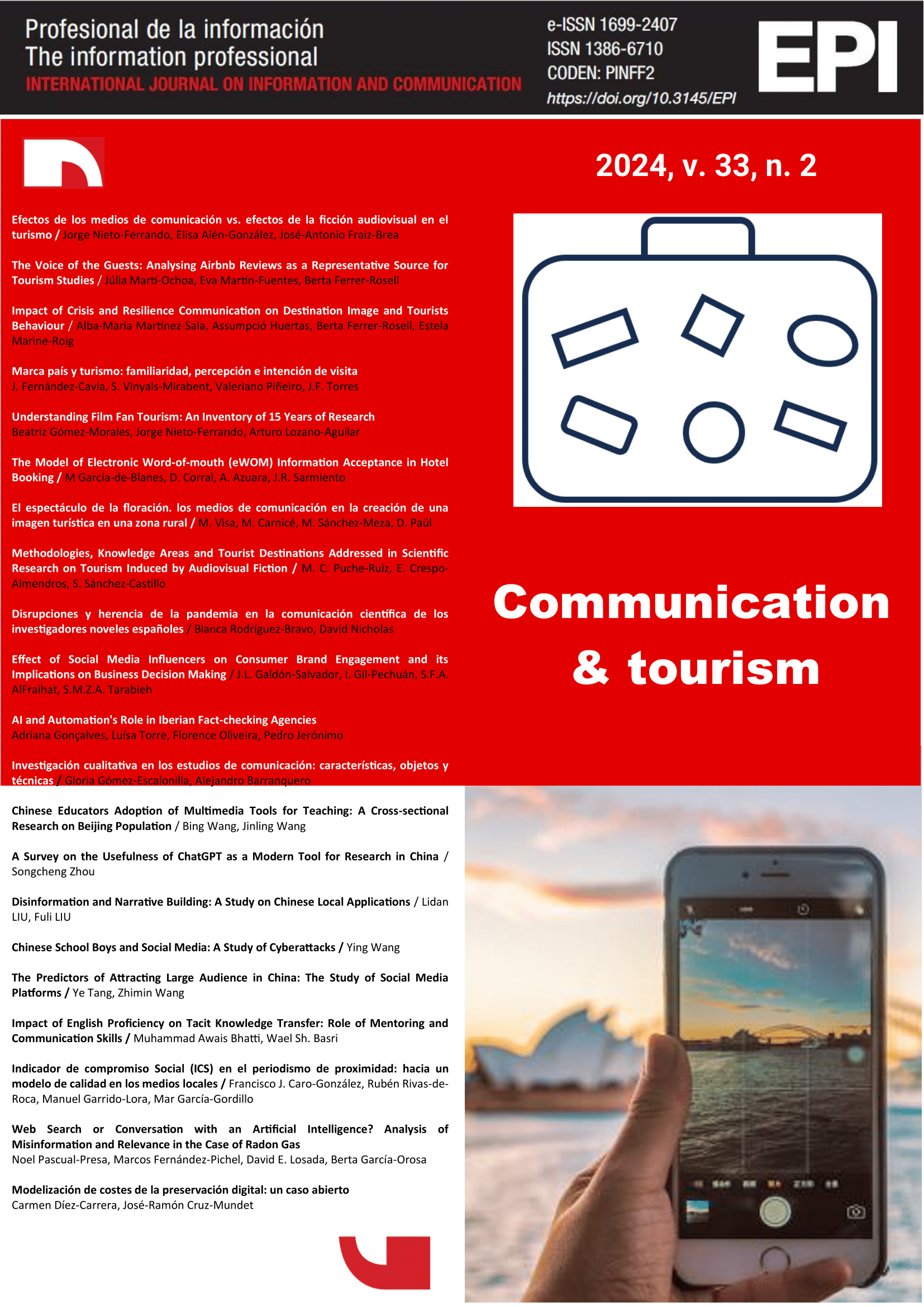The Model of Electronic Word-of-mouth (eWOM) Information Acceptance in Hotel Booking
DOI:
https://doi.org/10.3145/epi.2024.0206Resumen
The objective of this research is to analyse the factors that influence hotel booking decisions. In Spain, the hotel industry plays a crucial role, making it essential to understand what elements motivate consumers to make hotel reservations. To address this issue, several key factors are considered, such as the IACM theory of eWOM, habit, attitude, and enjoyment. These elements are considered fundamental to understanding consumer motivations in the hotel booking process. In this study, structural equation analysis is used to examine and measure the relationships between these factors. The goal is to determine the influence that each of these factors has on consumers' final hotel booking decisions. The findings of this research will contribute to the knowledge and understanding of consumer behaviour in relation to hotel reservations. They will also be highly beneficial to the hotel industry, as these insights can be used to enhance the offerings and consumer experience in hotel establishments.
Descargas
Downloads
Publicado
Número
Sección
License
Copyright (c) 2024 Profesional de la información

This work is licensed under a Creative Commons Attribution 4.0 International License.
Condiciones de difusión de los artículos una vez son publicados
Los autores pueden publicitar libremente sus artículos en webs, redes sociales y repositorios
Deberán respetarse sin embargo, las siguientes condiciones:
- Solo deberá hacerse pública la versión editorial. Rogamos que no se publiquen preprints, postprints o pruebas de imprenta.
- Junto con esa copia ha de incluirse una mención específica de la publicación en la que ha aparecido el texto, añadiendo además un enlace clicable a la URL: http://revista.profesionaldelainformacion.com
La revista Profesional de la información ofrece los artículos en acceso abierto con una licencia Creative Commons BY.





